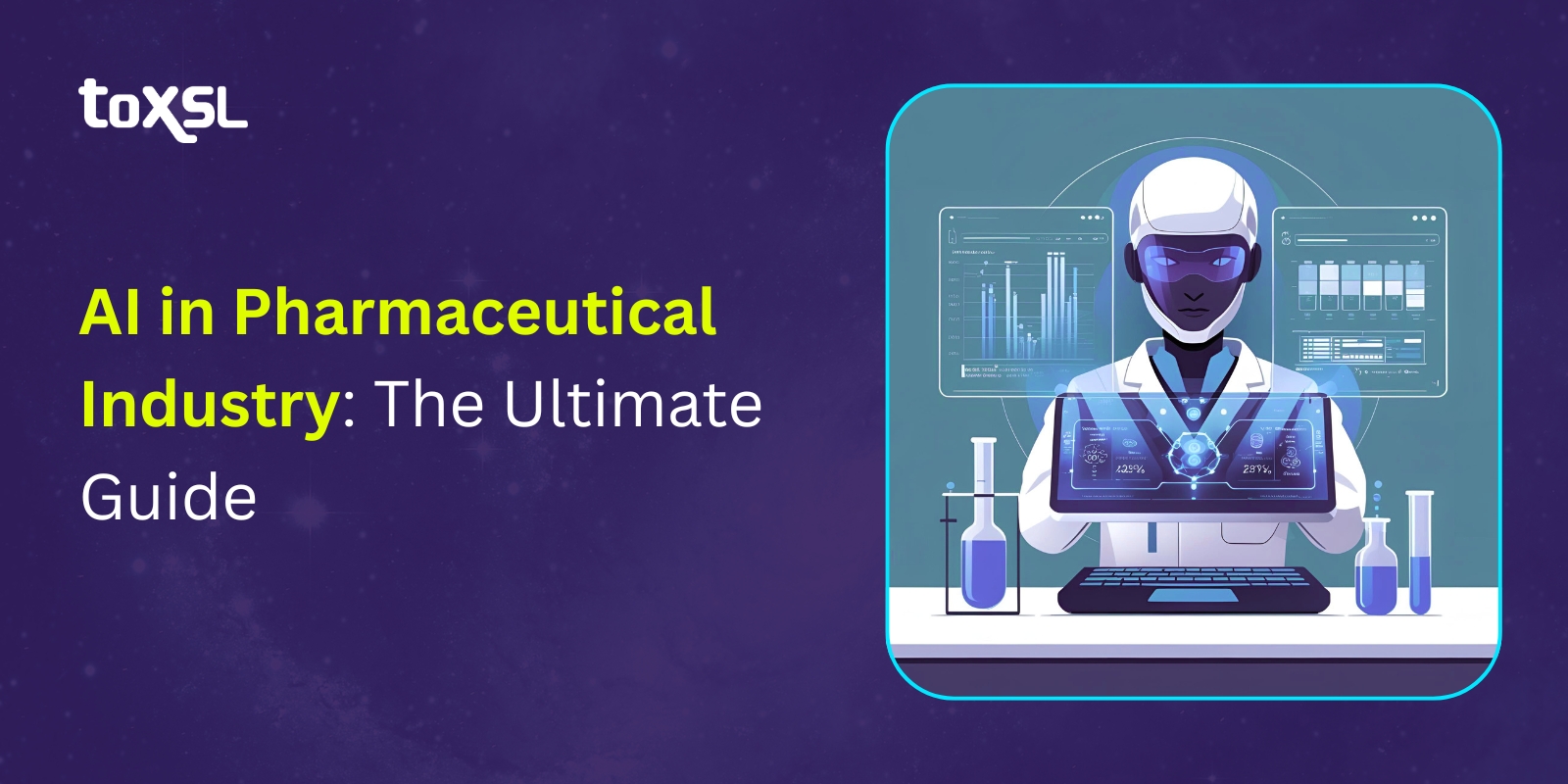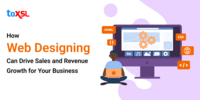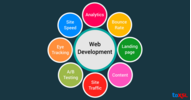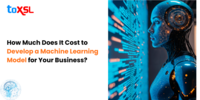- Jul 02, 2025
Share this post on:

AI is changing how pharmaceutical companies work, especially in research and development. It helps them by quickly going through huge amounts of data to find promising new drugs faster and more accurately than traditional methods. This means discovering new medicines can happen more quickly and cost less.
According to statistics, 80% of pharmaceutical professionals are using AI for drug discovery. Also, it is reported that 95% of companies are investing in AI. Further, a study found that AI can reduce the time to develop a drug by four years and save $26 billion.
When it comes to clinical trials, AI makes it easier to find the right patients by analyzing data to match people who fit the trial requirements. This helps trials run more smoothly and effectively. AI can also predict how trials might turn out, so companies can make smart changes early on to increase their chances of success. Besides research, AI also helps the pharmaceutical industry with managing the supply chain. It can predict how much medicine will be needed and keep track of inventory.
Key Takeaways
- AI accelerates drug discovery, reducing development time by up to 4 years and saving billions.
- It improves clinical trials by identifying suitable patients and monitoring safety in real-time.
- AI enables personalized medicine by analyzing genetics and lifestyle for tailored treatments.
- It optimizes pharmaceutical supply chains, ensuring efficient inventory and quality control.
- Future AI advancements, including quantum computing integration, will further transform pharma.
Applications of AI in Pharmaceuticals
As AI is transforming the world of pharmaceuticals in numerous ways. A lot of pharma companies use AI tools, helping them come up with great and innovative ideas. AI tools used in pharma companies have the potential to increase innovation and make the industry more efficient. Let’s analyze the most common applications of AI in pharmaceuticals and the benefits AI brings to each of them:
Drug Discovery & Development: Drug discovery and development is one of the major areas that are impacted by AI. Drug discovery used to be a time-consuming and costly process. Traditionally, it used to take several years and a lot of financial investment. However, with the advent of AI in drug discovery and development, the identification of potential drugs has become easy and fast. Researchers can analyze large chemical, biological, and clinical data using AI algorithms to uncover potential candidates faster and more accurately. The AI algorithms can easily tell how a drug will work. If it causes side effects or is safe. Also, it can predict a drug’s safety and effectiveness before it is tested on people, making drug development faster and safer.
Clinical Trails: AI is redefining how clinical trials are done. These tests address that the new medicine is safe to use and work effectively. Traditionally, running clinical trials was hard, time and money-consuming. However, AI has made this process easier by improving the trial processes. AI looks at patient records to find people who fit the trial rules. This makes it faster and easier to find the right patients. It also saves time and money. During the trial, AI watches patient data all the time. It can see early signs if a patient has side effects or if something is wrong. With the help of AI tools, pharmaceutical industries can look at the data from health records and health websites to find side effects or problems. This, in turn, helps pharmaceutical companies and doctors keep patients safe. AI can read all the trial results to find useful patterns, helping researchers understand if the medicine works well.
Custom Medicine: Traditional treatment methods adopt a generalized way of patient care, which doesn’t always fit every patient. However, using AI, drug companies use AI to study each person’s genes, lifestyle, and health history to develop an effective treatment plan for them. This makes the treatment work better, reducing the chances of side effects. AI also easily help companies helps companies study complex genetic information to find changes linked to certain diseases. This helps doctors develop medicine, targeting the exact cause of a person’s illness and giving them better and more personalized care.
Supply Chain and Manufacturing: AI does a lot more than just help create new medicines and treat patients. It also plays a big part in managing how medicines are made and delivered. Keeping the supply chain running smoothly is really important to make sure medicines are always available when people need them. AI studies past information and market trends to guess how much medicine will be needed. This helps avoid running out or having too much stock.In factories, AI keeps an eye on machines to make sure they work well and that medicines are made with good quality. It can even predict when a machine might break down, so repairs can happen before any problems occur. AI also checks products automatically and keeps monitoring them all the time. This helps make sure medicines follow strict quality rules, reduce mistakes, and keep everything safe.
Benefits of AI in Pharma
AI is helping the pharmaceutical industry in real ways by solving big problems like slow processes, high costs, and tough decisions. Here are five clear benefits AI brings to Pharma businesses:
1. Faster Drug Discovery: Finding new medicines used to take a very long time and lots of tests. AI helps by quickly looking at lots of information about chemicals and genes to find good medicine options faster. AI removes the bad options early and focuses on the best ones. This saves time and money, so companies can work on the most promising medicines.
2. Better Clinical Trials: Clinical trials test new medicines but can be slow and expensive. AI helps by finding the right patients faster using their health and genetic information. This makes trials start sooner and work better. AI also watches the trial results as they happen to find any problems early. This helps make trials safer and faster.
3. Personalized Medicine: Not everyone gets better with the same treatment. AI helps doctors make treatment plans just for you by looking at your genes, lifestyle, and health history.
This means the medicine works better and causes fewer side effects. AI helps doctors give the best care for each person.
4. Smarter Supply Chain: Getting medicines to people is hard because they need special care and come from many places. AI helps by guessing how much medicine will be needed and spotting problems early. AI helps keep the right amount of medicine in stock so there is no shortage or waste. It also makes sure medicines reach the right place on time.
The Future of AI in Pharmaceuticals
AI is changing all the time, and its role in the pharmaceutical industry will keep growing quickly. Right now, there are some exciting trends and new ideas that will shape how AI is used in the future.
For example, using AI together with powerful tools like quantum computing could help researchers understand how molecules work together. This would help them find new medicines faster.
AI might also use live data from clinical trials as they happen, making the drug development process more flexible and faster. As we learn more about genetics and other biological areas, AI will be able to study large amounts of data to find new signs of diseases and new treatment options. This will help create medicines that are personalized for each person’s unique genes and health conditions.
Better AI models could also improve how we predict how patients will respond to treatments, design better clinical trials, and catch problems early.
Finally, as AI becomes more important in making medicines, it’s important to make sure AI is used responsibly. Future AI tools should be clear and easy to understand, so people can trust how decisions are made.
Conclusion:
In conclusion, AI is revolutionizing the pharmaceutical industry via enhanced efficiency and data analysis. So, if you are in the Pharma industry and want to incorporate AI in your systems, ToXSL Technologies is here to help. We are a leading Artificial Intelligence services provider company helping the pharmaceutical industry grow with our advanced solutions. Contact us to learn more.
FAQs
1. How is AI helping reduce drug development time?
AI drastically shortens the drug discovery and development process by automating the analysis of vast chemical, biological, and clinical datasets. Traditional methods could take over a decade to bring a drug to market, but AI models can identify promising compounds, predict their behavior, and filter out ineffective ones in a fraction of the time. By simulating clinical outcomes and reducing trial-and-error phases, AI enables pharmaceutical companies to bring safe, effective drugs to market up to four years faster.
2. Can AI improve patient safety in clinical trials?
Yes, AI significantly enhances patient safety by continuously analyzing patient data throughout the clinical trial process. It helps identify potential side effects or adverse reactions early on, enabling quicker intervention and course correction. AI also helps match participants more accurately based on health records, genetics, and eligibility, minimizing risks from improper patient selection. This proactive monitoring improves safety and ensures higher data reliability.
3. What role does AI play in personalized medicine?
AI plays a crucial role in advancing personalized medicine by using individual patient data—such as genetic makeup, lifestyle factors, and medical history—to design tailored treatment plans. This approach improves the effectiveness of therapies and minimizes side effects, especially for complex or chronic conditions. Instead of a one-size-fits-all approach, AI enables precision healthcare, where treatments are customized to the unique biological and environmental profile of each patient.
4. How does AI enhance pharma supply chains?
AI optimizes supply chain operations by forecasting demand accurately using real-time data and historical trends. It identifies potential disruptions, predicts equipment failures, and ensures optimal inventory levels to prevent overstocking or shortages. In manufacturing, AI monitors production quality and automates inspections, reducing human error and maintaining compliance with strict safety standards. This ensures medicines are produced efficiently and delivered on time to meet patient needs.
5. Is AI replacing human roles in pharma?
AI is not replacing human roles but enhancing them by automating repetitive, data-heavy tasks. Scientists, researchers, and clinicians can focus more on strategic decision-making, innovation, and patient care while AI handles data analysis, pattern recognition, and predictive modeling. The synergy between human expertise and AI tools leads to better outcomes, faster discoveries, and more informed decisions across the pharmaceutical value chain.











